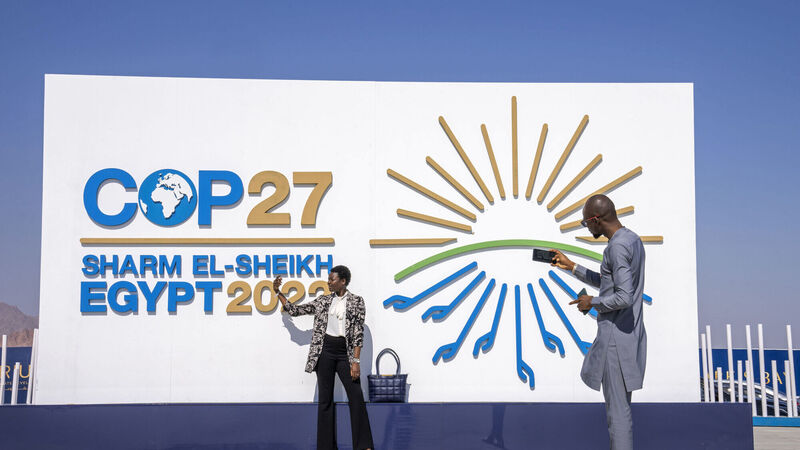Cop27 climate talks in Egypt: key questions answered

Chadians pose for a photograph at the entrance of the COP27 U.N. Climate Summit in Sharm el-Sheikh, Egypt. Picture: AP Photo/Nariman El-Mofty
As Cop27 gets under way in Egypt, here are answers to some of the key questions about the climate conference.
CLIMATE & SUSTAINABILITY HUB














